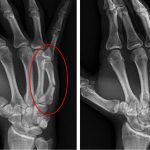Contents
atracurium
Atracurium is a medication used during surgical procedures, endotracheal intubation, and mechanical ventilation. It relaxes muscles by blocking acetylcholine, a chemical messenger that makes muscles contract. Atracurium binds to receptors on motor end-plates, preventing stimulation by acetylcholine. Other medications are used to reverse its effects after the procedure.
Warnings
- Do not use atracurium if you are hypersensitive to it.
- Atracurium should only be administered intravenously, not intramuscularly.
- It must be administered by a skilled medical professional prepared for immediate endotracheal intubation, mechanical ventilation, and muscle twitch monitoring.
Side Effects
Common side effects of atracurium include skin flush, redness, rash, hives, wheals, itching, injection site reaction, wheezing, increased bronchial secretions, and changes in mean arterial pressure and heart rate.
Less common side effects include prolonged neuromuscular block, inadequate block, hypotension, dilation of blood vessels, rapid or slow heart rate, cardiac index and output changes, dyspnea, laryngospasm, bronchospasm, severe allergic reactions, bluish skin, and cardiac arrest. Severe symptoms or serious side effects should be reported to your doctor immediately.
Dosages
Injectable solution
Adults
Endotracheal Intubation, Mechanical Ventilation
- Calculate dose based on ideal body weight.
- 0.4-0.5 mg/kg intravenous push (IVP) over 60 seconds, then 0.08-0.1 mg/kg 20-45 minutes later for maintenance. Repeat maintenance dose as needed.
- Continuous infusion: 0.005-0.01 mg/kg/minute IV.
- 0.2-0.4 mg/kg IVP if following succinylcholine for intubation.
Skeletal Muscle Relaxation During Surgery
- 0.4-0.5 mg/kg IVP over 60 seconds, then 0.05-0.10 mg/kg/minute for maintenance.
Pediatric:
Endotracheal Intubation, Mechanical Ventilation
- Children below 1 month old: Safety and efficacy not established.
- 1 month – 2 years: 0.3-0.4 mg/kg IVP under halothane anesthesia.
- Children above 2 years: 0.4-0.5 mg/kg IVP over 60 seconds, then 0.08-0.1 mg/kg 20-45 minutes later for maintenance. Repeat maintenance dose as needed.
Overdose
- Atracurium overdose is rare but may cause histamine release, hypotension, and other cardiovascular effects.
- Treatment includes airway and cardiovascular support, and administration of acetylcholinesterase inhibitors to reverse the effects.
Drug Interactions
Inform your doctor of all medications you are currently taking to check for any possible drug interactions. Atracurium has no severe interactions, but it has serious interactions with 29 drugs, moderate interactions with 109 drugs, and mild interactions with 41 drugs.
Pregnancy and Breastfeeding
- Atracurium may cause fetal harm, so it should only be used during pregnancy if benefits outweigh risks.
- Possible forceps delivery and effects on newborns are not known.
- Use with caution during breastfeeding, as it is unknown if atracurium is excreted in breastmilk.
By clicking Submit, you agree to the MedicineNet’s Terms & Conditions & Privacy Policy and understand that you may opt out of subscriptions at any time.
Summary
Atracurium is a medication used during surgical procedures, endotracheal intubation, and mechanical ventilation. Common side effects include skin flush, redness, rash, hives, wheals, itching, injection site reaction, wheezing, increased bronchial secretions, and changes in mean arterial pressure and heart rate. It may cause fetal harm during pregnancy.


